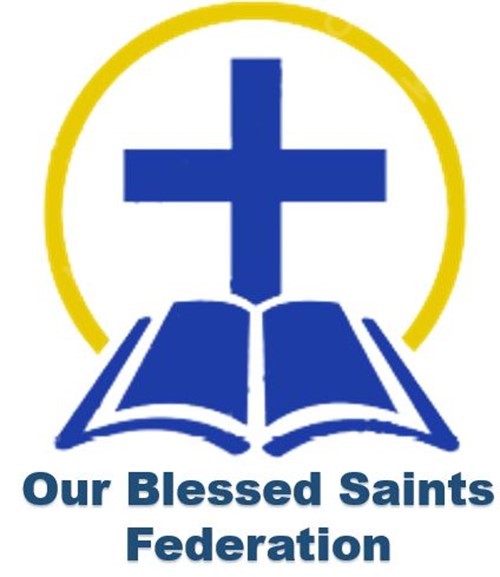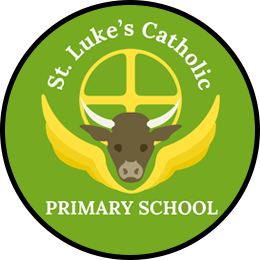Behaviour
We operate a Positive Teaching Policy whereby all staff (both teaching and support staff) praise and reward the following:
good behaviour
an appropriate attitude towards learning
for showing care and consideration towards others
The St. Luke‟s ethos is based on the quality of relationships within our school encompassing the gospel values and the school mission statement. The interactions, which go on daily between all staff and pupils, provide good working role models in which we all relate to each other.
We would seek to provide an environment where all staff treat children courteously, respect their ideas, value their individuality and listen carefully to what they have to say. We believe that all the staff have a key role to play in the example they set children in the way they treat others. Children learn by example and are more likely to respect each other and behave sensibly themselves where this courteous and respectful atmosphere is expected and prevails.
The school aims to be consistent and fair with all children. We endeavour to create a whole school ethos which is conducive to good behaviour and that the rules and expectations of appropriate behaviour are clearly understood by staff and pupils. To
this end class teachers will discuss explicitly these values with the children on a regular basis eg when setting up class rules which are displayed in the classroom.
Rewards
Awards are given for
a) effort in work
b) effort in behaviour
c) showing care and consideration
We have four houses within the reward system and each child is allocated a house. They will compete for points which are then totalled at the end of the term and the winning house will win a prize! They also compete in their houses for Sports Day and the winning team win the Champions Shield!
Golden Assembly
A place in the Golden Assembly Book is our ultimate reward
Each half term teachers nominate children who have sustained for that period a particular quality appropriate to the child. This might be related to work, behaviour, care, motivation etc.
Their names are read out with particular praise at a special assembly to which parents have been invited.
The parents also receive an individual telephone call or letter informing them of the award and the reasons for it.
Governors’ Awards
At the end of each term Governors award prizes to the children who have made most progress in each class in the following categories: Numeracy and Literacy. Parents are informed in advance and invited to attend.
Sanctions
Teachers remind the children frequently of rules and expectations by praising at least 2 children for following one in particular. Any child who continues not to follow the rule will have his/her initials written on the board. This serves as a warning. For a further offence “5‟ is put up next to the initials which signifies 5 minutes “time out” in class. If a child re-offends he/she will spend 5 minutes “time out” in another class.. In the unlikely event of a further offence occurring parents are informed. Regular offences at this level would necessitate a meeting with parents so that we could plan together how we can modify inappropriate behaviour (with the help of external agencies if necessary). The ultimate sanction any school can apply is to exclude a child for up to 45 days in any year or even permanently. Exclusion is only used very rarely at St. Luke‟s.
BULLYING
The school endeavours to ensure that no child is discriminated on the basis of their race, age, disability, sexual orientation, transgender or on any other unjustified grounds.
BULLYING OF ANY FORM IS NOT TOLERATED AT ST. LUKE’S – but it can happen in any school in a variety of forms and degree of dominance of the bully over the victim(s). Bullying is the persistent targeting of a victim. Bullying can include violent behaviour, name calling, teasing, ostracising, highlighting differences in a negative way, threatening behaviour, making unacceptable demands, etc. It thrives on a bed of secrecy. Bullying is discussed with the children at regular intervals both in class and at assembly. The children are frequently reminded that they must inform their teachers or the Headteacher should they become victims or witness bullying. Equally parents should inform the school as soon as possible if they suspect that their child is a victim. Possible signs of bullying include that the child may:
be unwilling to go to school
come home regularly with clothes/belongings damaged
become withdrawn/distressed
have unexplained bruises, scratches, cuts
give improbable excuses.
If in doubt contact the school for advice. EVERY CHILD HAS THE RIGHT TO RECEIVE HIS/HER EDUCATION WITHOUT INTERFERENCE/HINDRANCE FROM OTHERS.
Should bullying occur at St. Luke‟s, we will work as a Christian community to help both victims and bullies. We will ensure the continued safety of the victim and support the bully‟s attempt to improve this antisocial behaviour.
All incidents of bullying are recorded in the School‟s Behaviour File. This file is used to record a description of the incident by a member of staff, the child‟s/children‟s description of what happened (if appropriate) and the action taken. Parents of both victim and bully are informed of every incident.
Please see our separate safeguarding and child protection, behaviour and anti-bullying policies.
RACISM
Racism is not tolerated at St. Luke‟s but sometimes pupils in school suffer from it or become involved in racist incidents while at school. Racist behaviour is any hostile or offensive action or words by a person of one ethnic group or culture against a person of another group. Racist incidents include racially prejudiced remarks and name calling, teasing, taunting, being/feeling excluded and physical violence. We follow the LA‟s guidance in tackling racism and record incidents in the School‟s Behaviour File. An annual return on racist incidents is made each year to the Governing Body and LA.








